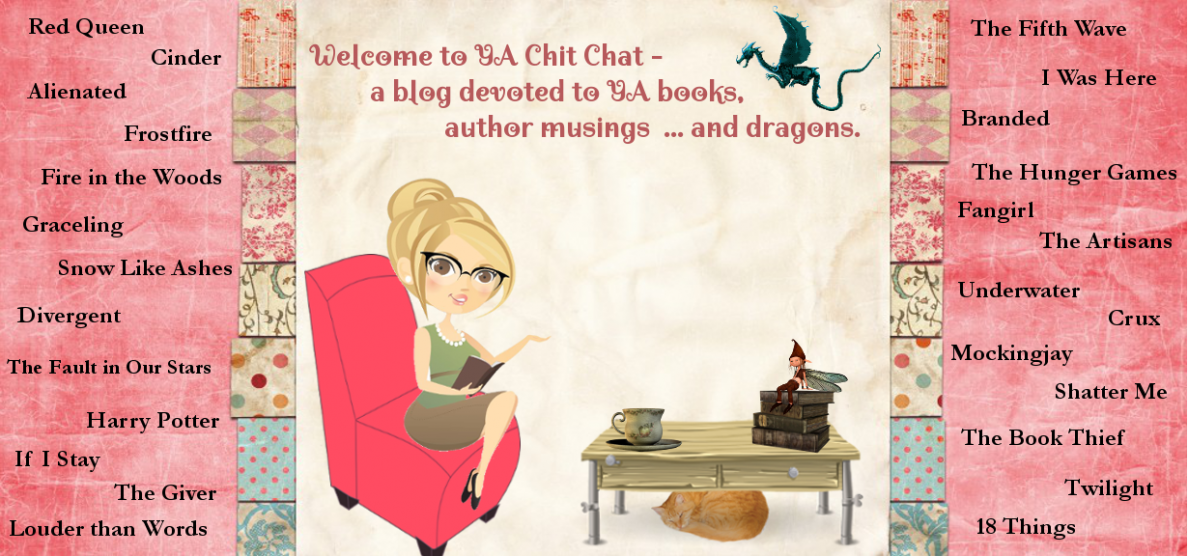Hi, everyone! This post is part of the A-Z challenge. Please take time to visit the other blogs that are participating.
As many of you know, I write primarily YA fantasy. I love the genre as much as I love the generation I write for. Why? Because young people between the ages of 15 and 22 are searching for who they are, what they are. It’s a giant quest to figure out the game of life and where they fit into the huge puzzle. Couple that with a few dragons, knights, a cranky meadow gnome and some pretty regimented feys, and you’ve got a rip-roaring YA fantasy story with a quest.
But how do you write a quest?
Well, I’m no J.K. Rowling or J.R.R.Tolkien, but here are a few things I’ve learned along the way in my limited writing career :
1. A quest is nothing more than a plot line. Every character – whether in fantasy, crime, mystery, romance – has a quest, a goal they are trying to reach. Define the goal. What journey do you want your characters to take?
2. Develop your characters. This cannot be stressed enough. You need to know them inside and out. You will need a hero, a heroine, and the lucky sod(s) who guide(s) the hero along the way. Each one needs to be identifiable and likeable. You also must have the villain. He can either be detestable or leave the reader with a love/hate relationship. He is not all bad. Why? Because no one is all bad. He must have a redeeming quality of some sort, even if it’s his/her hypnotic amber eyes that lead your hero to his doom.
3. There must be something worth obtaining. It can be human, inanimate, spiritual, but it has to be something the hero must find to make him whole. It needs to be something the hero would fight and die for to get. Make sure the reader wants him to find it, too.
4. Plan the conflicts. Some editors will recommend at least 3 anti-climaxes before the big WHAM at the end. Make them short, fast and more intense than the one before. Build the tension. Make your reader WANT, Need to find out what happens.
5. Don’t stray away from the goal. Stay focused. It’s easy to get off track and delve into a side-story, but don’t. Save those for another time. The reader may love reading about Auntie Kim and her award-winning lizard stew, but if it doesn’t move the story along or have anything to do with your hero accomplishing his quest, Auntie Kim will have to go. Keep her handy, though. She might have her own story to tell of her own down the line.
6. Make sure your character grows.. Make sure he learns something from his struggles, both internal and external. In the end, he has to be different than when he began the journey.
7. Don’t leave your reader hanging in the end.. Even if you are leaving the storyline open for a sequel, make sure you finalize the current quest. I hate to keep using the Harry Potter series as an example, but Rowling did this so perfectly. Each book had a main quest – the 1st was finding and destroying the Sorcerer’s Stone. The second was finding out who Tom Riddle was and destroying the basilisk in the Chamber of Secrets, and on and on. The quest that carried throughout the seven books was the need to destroy Voldemort. If you are planning a series, make sure (a) the underlying theme that will carry over is well-defined, (b) that each story has its own primary quest, and (c) that quest is wrapped up, finished, complete. There must be closure to the immediate quest. Otherwise the reader is left hanging. You don’t want to leave your readers hanging. Spend time on the ending. Leave your readers with the desire to come back for more.
And there you have it. The simple steps of how to write a quest. Now get at it. That WIP isn’t going to write itself.
(…now where’s that red pen of mine…)
Related articles
- H is for Heroes and the Hero’s Journey (lisavoisin.wordpress.com)
- J.K. Rowling to Write HARRY POTTER Encyclopedia (collider.com)


Thanks for the tips. I’ll have to dust off the fantasy story I wrote years ago (that my writer’s group tore to pieces) and see if there’s anything to salvage using all the steps you’ve just mentioned! 🙂
LikeLike
Howdy, friend! Those are really good tips for any kind of writing, whether fantasy or otherwise. Best regards to you. Thank you so much. A lot to think about in those tips.
Ruby aka Grammy
LikeLike
I love — 4. Plan the conflicts. Three huh? I need to keep that in mind. I aso have to be careful my characters grow.
LikeLike
Yep. That was an issue I had with David. He didn’t change a whole lot in the first round. He does now, though. Must finish…
LikeLike
Nice straight forward advice on quests in fantasy. Thanks! Definitely stuff I can use going forward. 🙂
LikeLike
Great advice, k… You really made the points easy to understand! 🙂
LikeLike
Awesome advice, Jenny. I’ve never really thought about it this way, but you’re right: A quest really is just a plot. Sure makes the whole concept feel simpler!
LikeLike
Great advice. I wrote about Quests today, too. 🙂
J.C. Martin
A to Z Blogger
LikeLike
I had to smile at this: (…now where’s that red pen of mine…) 😀
Great steps and a wonderful reminder, Jenny!
LikeLike